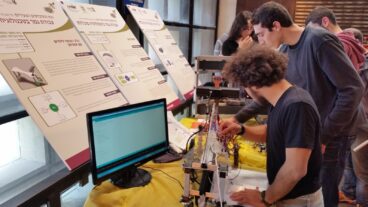Essential Question: What is our responsibility as a community?
More than 100 school shootings in the United States since 2010 have cost the lives of 107 people and injured hundreds more.
Since the deaths of 20 children and six staff members in the December 2012 shooting at Sandy Hook Elementary School in Newtown, Connecticut, there has been an average of one school shooting every week. In the most recent incident, on September 3 at Sacramento City College in California, a 25-year-old student was killed and two were wounded.
What can be done to stop this shocking trend?
Israeli researchers believe they have a profiling technique that can accurately identify potential school shooters. In a recent study published in Frontiers in Forensic Psychiatry, they explain that analyzing the writings of known school shooters reveals specific common personality traits including narcissism*.
Computerized screening of individuals for these traits could provide a valuable preventive tool.
“While ethical considerations are inevitable, we can definitely imagine a situation in which parents give the school permission to scan their teenagers’ social-media pages under certain limitations,” said Prof. Yair Neuman, a member of the Ben-Gurion University of the Negev Homeland Security Institute.
“In this context, using our automatic screening procedure, a qualified psychiatrist or psychologist who is trained may automatically get ‘red flag’ warnings for students whose texts express a high level of potential danger.”
Neuman said that there is currently no clear consensus or clinical diagnosis that can be used for screening potential school shooters.
Another tool in the toolkit
In collaboration with independent researcher Dan Assaf of Petah Tikva, CEO Yochai Cohen of Galasio Coding software house in Tel Aviv, and James Knoll, a forensic psychiatrist at the State University of New York’s Upstate Medical Center in Syracuse, Neuman studied the writings of six men involved in school shootings worldwide.
Comparing these texts to 6,056 texts written by a comparison group of male subjects, the team found that the shooters’ texts scored significantly higher on the narcissistic personality dimension as well as on the humiliated and revengeful dimensions.
“Using a ranking/prioritization procedure, similar to the one used for the automatic identification of sexual predators, we provide support for the validity and relevance of the proposed methodology,” they report.
The methodology is automatic, so it could be used to screen a massive number of texts in a short time to aid the detection process. It relies on a technique called “vector semantics.”
“For example, an investigator may want to measure the extent in which narcissism is manifested in a text,” Neuman explained. “First, we define a vector of words representing this personality such as ‘arrogant,’ ‘manipulative,’ ‘egocentric’ and ‘insensitive.’
“The computer measures the distance between the vector of words comprising our target text and those representing narcissism in a high-dimensional semantic space. The closer the vectors appear, the higher the writer’s narcissistic ranking.”
He stressed that the software cannot solve the enormous difficulties in profiling and identifying school shooters, but adds another tool to the toolkit of forensic psychiatry and law-enforcement agencies.
“We believe our methodology can gain more validity with the ranking/prioritization process of suspects, similar to the automatic identification of sexual predators created to prioritize an investigation.”
*KEY WORD – narcissism – extreme selfishness, with a grandiose view of one’s own talents and a craving for admiration, as characterizing a personality type.
Some may equate narcissism with confidence. This article shatters that perception and gives us pause to think that it is something very different. What is our responsibility as a community? How do we make sure we are engaging those on the “fringe?” Join the conversation on the EDUCATORS21c Facebook page.













